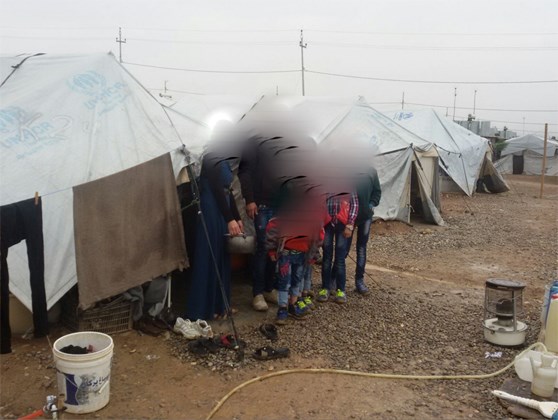The North Shore is eager to help bring Syrian refugees to Canada and it’ll likely be local agencies supporting private sponsors that will have the biggest role to play.
“People really want to help,” said Elizabeth Jones, executive director of the North Shore Multicultural Society, following a meeting about the Syrian refugee crisis attended by about 300 people Monday night. “One man just said to me, ‘Just tell me what I can do.’”
Many of those in the crowd at the West Vancouver United Church Monday were there to hear how they could either sponsor refugee families or help once those people arrive in Canada, said Alison Dudley with the North Shore Immigrant Inclusion Partnership.
The presentation on the North Shore took place a day before the Liberal government announced more details of its plan to bring Syrian refugees to Canada. The government conceded Tuesday it will not be able to bring 25,000 government-sponsored refugees to Canada by the end of December, as promised by Prime Minister Justin Trudeau during the election campaign.
Instead, the government now aims to bring 10,000 Syrian refugees to Canada – including both government-sponsored and privately sponsored refugees – by Dec. 31, with another 15,000 arriving by the end of February 2016.
Immigration and Refugees Minister John McCallum said in a press conference Tuesday the decision to extend the deadline was to allow health and security screening to happen overseas and to ensure local and provincial agencies have services in place to help arriving refugees.
That approach is supported by the public even if it means slowing down the process. “They want us to do it right,” he said.
McCallum said Canada will work with a database of names provided by the United Nations High Commissioner on Refugees and give a higher priority to refugees who are the most vulnerable and present a lower security risk – such as women, children and families.
If any red flags pop up, those applications will be set aside and screeners will move on to the next applicant, said Public Safety Minister Ralph Goodale at the press conference.
The government will use privately chartered planes to bring refugees to Canada, with military planes available for backup.
The government has pegged the cost of helping the refugees at $678 million over the next six years.
The decision to extend the deadline for bringing in refugees was defended by North Vancouver MP Jonathan Wilkinson, who said the change in plan represents a “prudent balance” between responding compassionately to the refugee crisis and ensuring safety.
“It if takes a couple of extra months” to do screening checks, that’s something Canadians support, he said.
Wilkinson said in practical terms “there’s not much difference between January 1st and March 1st.”
Jones also described the change in plan Tuesday as “really reasonable.” “They have a huge task in front of them and they want to do it right.”
In the Lower Mainland, one of the key services that will have to be worked out ahead of the refugees’ arrival is English language training. On the North Shore, there are more than 30 free language classes, said Dudley. But there is also a big demand, with more than 700 people currently on the waiting list.
“People can be on the wait-list for more than six months,” she said.
Agencies across the province are now meeting and mapping where the wait-lists for such services are highest and where there is more space available. They are also counting how many Arabic speakers work for various service organizations.
Those factors – along with the availability of housing at provincial welfare rates – will all determine where the Syrian refugees end up.
Conservative Immigration Critic Michelle Rempel said Tuesday the change in the government plan indicates Trudeau made his campaign promise on refugees without a proper plan in place.
“It’s more than a smile. It’s more than hope. It’s more than unicorns,” she said. “You need to have a plan.”



